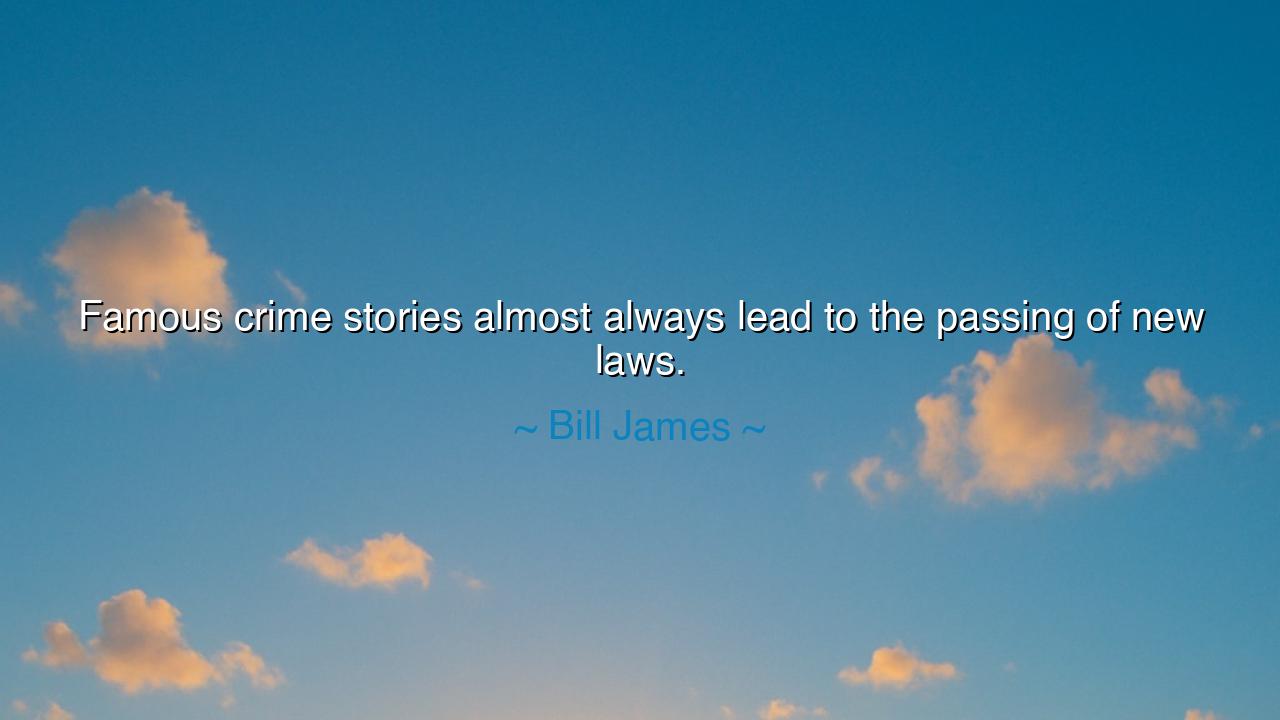
Famous crime stories almost always lead to the passing of new






Host: The room is bathed in the soft glow of evening light, casting long, flickering shadows across the floor. The city outside hums with the distant rhythm of life, while inside, there’s a quiet intensity. Jeeny sits at the edge of the table, a cup of tea cradled in her hands, her gaze focused on the window. Jack leans against the bookshelf, his eyes scanning the pages of an old book, but his mind is clearly elsewhere. The silence between them is filled with a quiet anticipation, the unspoken thoughts lingering in the air.
Jeeny: (her voice thoughtful, almost reflective) “You ever think about how crime stories shape the world we live in? The way one incident can lead to laws being passed, even social change?”
Jack: (glancing at her, his voice dry, but intrigued) “Crime stories leading to laws? Yeah, I guess. It’s like whenever something big happens, people feel the need to act, to change things. But how often does a crime really change the law, or do people just get caught up in the drama of it all?”
Jeeny: (nodding slowly, a soft smile playing at the corners of her lips, her voice gaining a bit of momentum) “It’s funny, isn’t it? Bill James once said, ‘Famous crime stories almost always lead to the passing of new laws.’ It’s like the system reacts to the spectacle of crime, and suddenly, something that was once unthinkable becomes necessary.”
Jack: (pauses, his eyes narrowing slightly as he processes the thought) “So, you’re saying that big crimes—especially the ones that catch public attention—have a way of forcing the hand of lawmakers? That people see the horror of a situation and then want to protect themselves from it by creating laws?”
Jeeny: (smiling gently, her eyes shining with quiet understanding) “Exactly. It’s like society’s response to fear. When a high-profile crime happens, it’s not just about the people involved. It’s about how the collective fear drives us to act, to make sure that something like it doesn’t happen again. Suddenly, new laws are created to control or prevent what we now see as a threat.”
Host: The room seems to grow stiller, the weight of Jeeny’s words settling between them. Jack stands by the window, his gaze far away, as though considering the broader implications of what she’s said. The world outside continues its rhythmic pulse, but inside, the conversation has shifted into something deeper, more intricate.
Jack: (his voice slightly quieter, more introspective now) “But isn’t that a bit of an overreaction? I mean, passing laws just because of one incident? Shouldn’t we be more careful, more thoughtful about what we’re putting into place?”
Jeeny: (her voice calm, but firm, as she responds with a trace of compassion) “I think there’s a balance, Jack. Yes, we should be thoughtful. But sometimes, crimes—especially those that expose deep, hidden issues—show us things we need to address. It’s not always an overreaction. It’s a societal shift, a response to something that’s been ignored for too long. The laws come because the collective conscience demands change.”
Jack: (pausing, as though grappling with her point, his voice more reflective) “So, you’re saying that sometimes crime exposes cracks in the system that we weren’t paying attention to before? That we don’t always see the problems until something tragic happens?”
Jeeny: (nodding, her eyes soft with understanding) “Exactly. It’s like the world doesn’t always see something as an issue until it’s brought to the forefront. Sometimes, tragedy is the spark for change. But it’s not about jumping to conclusions; it’s about taking action to prevent what we know is a systemic problem.”
Host: The room is filled with a quiet understanding, the complexity of their conversation settling between them. Jack, still standing near the window, is quiet for a moment, letting the weight of the conversation sink in. Jeeny watches him, her expression open, knowing that sometimes the hardest truths come in the form of reflection.
Jack: (his voice soft now, almost with a touch of admiration for her perspective) “I see it now. It’s not about fear driving the laws—it’s about our response to something bigger than just one incident. Crime shows us where the system is broken, where it needs to be fixed.”
Jeeny: (smiling softly, her voice full of quiet resolution) “Exactly. And while no law can undo the harm, it’s a step toward healing, toward creating a system that’s more just, more aware of its own limitations. Crime exposes those weaknesses, and in that exposure, there’s a chance for growth.”
Host: The room feels lighter now, as though the conversation has made a shift from something reactive to something more introspective. The world outside continues its hum, but inside, Jeeny and Jack have come to understand that the laws that shape society are often born from the very things we fear, the crimes that force us to reckon with the gaps in the systems we’ve created.






AAdministratorAdministrator
Welcome, honored guests. Please leave a comment, we will respond soon